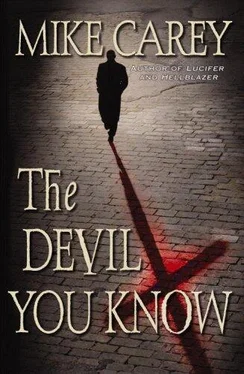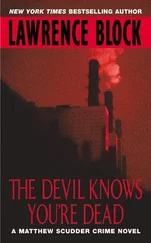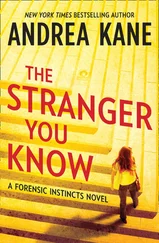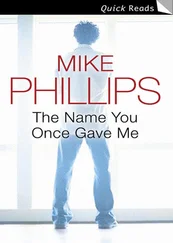Finally I was left with only one boat to check on this side of the marina, and it was a long way out from the others. If I got no joy here, I’d have to retrace my steps and try the other arm. But from twenty feet away, when I was able to read the name painted on its side, I knew this was the one. It was called the Mercedes . Not only was that the Spanish word for “kindhearted,” it was also the name of the woman I’d seen in Damjohn’s mind when I’d shaken hands with him the first time we’d met—the woman of whom he had such bloody and such happy memories.
I approached more stealthily now, although there were no windows lit on the yacht, and it seemed deserted. From ten feet away, I got all the corroborative evidence I needed when I saw Scrub standing up on the top deck. He was leaning on the rail at the stern end, staring out across the river toward Battersea. He was facing away from me, but there was no way of mistaking Scrub for anybody else, particularly since he was lit up romantically by the yellow radiance of a Victorian streetlamp, complete with scrollwork and nonfunctional gas mantle. I already knew Scrub was strong and mean. I wouldn’t have expected running water to deter him, although it ought to make him itchy and irritable. But there was no sign of that in his absolute immobility, his air of dense, unfathomable calm.
I looked ahead down the walkway past the Mercedes : nothing to see there. The planking just ended about twenty feet farther on, where presumably there was a last, unoccupied berth. As setups went, it wasn’t perfect, because it was remote, and that dead end might turn out to be a problem for me if things went wrong. But you do your best with what you’ve got.
I retreated off the walkway into the shadow of the last boat I’d passed—the Baroness Thatcher . I wondered inconsequentially which Tory grandee owned it and what perverse fantasy had made him name his toy boat after the Iron Lady. On the other hand, maybe it was a former wet who got a nostalgic kick every time he leaned hard on the tiller and proved that she was for turning after all.
I took off my shoes and dumped most of my tools—the lock picks and the bolt cutters; the crowbar I kept hold of. My best chance of surviving this encounter was if Scrub didn’t see me coming. Someone once bullshitted me that there’s a Welsh martial art called Llap-Goch, where the key to victory is to take out your opponent before he even knows you exist. I can get my head around that.
I rummaged in my pockets, checked that I still had the handcuff where I could get to it, and then took out my secret weapon. No point setting it up here—too far away. I started to pad stealthily down the walkway toward the Mercedes , unwinding the tangled length of cable as I went. It was weighted at its ends, like a bolas, but it was something else entirely. Scrub still hadn’t turned, which with luck meant that he was lost in whatever passed with him for thought.
About twenty feet away from the boat, I stopped and knelt down. I put the disk-shaped payload down at the very edge of the planking, where it was less conspicuous. I paid out the cable to its full length and pressed the button. I’d given myself two minutes of lead-in. Two minutes ought to get me to where I needed to be, and after that, we’d see. With good timing, I might even come out of this with my head still attached to my shoulders.
Three more steps brought me to the Mercedes ’s gangplank. She was a big ship—Mercedes had been a big woman, God rest her soul. There were three decks, and on the lowest one—the one I could see from where I stood—there was a door that obviously led down into the cabins. I toyed with the idea of getting out my lock picks and taking a crack at that door; it looked ridiculously easy. But no. Scrub was a dangerous man to have at your back. There was no point in getting in there if he was still extant and blocking the way out—and in the meantime, my two minutes were ticking away.
So I climbed the companionway steps to the middle deck and kept on going to the top. The crowbar was reassuringly heavy in my hands, but I wasn’t pinning much of my faith to it. I was counting off the seconds in my mind, and forty had gone by already. I could see Scrub up ahead of me, still contemplating the iconic chimneys of the Battersea Power Station.
I took a few quiet steps toward him, the crowbar raised in my hand. Then, when I was about ten feet away, I let my foot fall heavily on the deck. The big man turned and saw me.
“You don’t look any prettier by moonlight, Tinkerbell,” I said.
Scrub bared his teeth and growled. I think that meant that he was happy to see me. He lifted his elbows off the rail and came up to his full height, which was every bit as scary as I remembered it being.
“Castor,” he said, spitting out the word.
I didn’t answer. I just backed away, the look of terror on my face not at all difficult to assume. Scrub made a lunge, and that was nearly it for me. He was a hell of a lot faster than I would have expected, and if I’d gone backward, he would have had me. I jumped to the side instead and vaulted over the rail onto the middle deck.
It was too dark for acrobatics. I landed in a sprawl and scrambled up again as Scrub came charging down the companionway steps. He’d cut me off from the gangway now, so I stepped up onto one of the scuppers and made another death-defying leap down onto the wooden walkway below. The crowbar was still in my hand, and as an added bonus, I managed to avoid breaking my leg with it.
Scrub came down the gangway at his leisure. He had me trapped in the little dead-end section aft of the Mercedes , where there was nowhere to go but down.
“You little fucker,” he burred deep in his throat. Ninety seconds gone.
I took a few experimental swipes with the crowbar, making the air whistle in a way that I hoped was intimidating. But Scrub just laughed and started to lumber down the walkway toward me. “I wish you’d stuck with the whistle,” he said, smirking horribly. “I was looking forward to jamming it down your fucking throat.”
I backed away, dipping my free hand into my pocket. “Scrub,” I warned him, “I’ve got a secret weapon. Coincidentally, it’s behind you.”
He ignored that and just kept coming toward me. I was hoping that the crowbar might give him a moment’s pause, but he must have been threatened by bigger men than me and had probably eaten them for breakfast. (I really wish some other metaphor had occurred to me.) I brought my hand out of my pocket; the metal arc across my knuckles flashed bright in the light of the streetlamp. Scrub’s eyes went to it—not scared or even wary, but mildly curious.
“It’s silver,” I said. “You know what silver does to your kind. Keep your distance.”
Scrub shrugged massively. One of his huge hands reached out toward me, fingers spread wide. Out of options, I blocked and jabbed at him with the cuff. The metal grazed the skin of his wrist, and he flinched, feeling the pain. He hesitated, then took a step back. I did, too, taking advantage of that moment’s respite to shift my balance. That was when he charged me.
It was like a bull’s charge—no finesse, but lots and lots of momentum. His forearm hit me first, and it was rising, with all his weight behind it. That offhand, almost negligent swipe lifted me off the walkway and threw me ten feet through the air. I came down on my back at the very end of the planking, my head over the water and all the breath slammed out of me in one jarring gasp.
I tensed myself to roll aside, but Scrub was on me before I could move. His foot came down on my chest, pinning me to the ground and sending a jolt of electric pain through my stressed ribs. He glared down at me; one hand fumbled in his jacket pocket and came out with a knife. It would almost have counted as a sword in anybody else’s hands: a thick-bladed dirk with a recurved tip. He bent from the waist, caught a handful of my lapels in his other hand, and hauled me half upright. The edge of the blade touched my cheek.
Читать дальше











